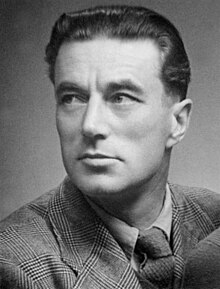Loading AI tools
New Zealand poet From Wikipedia, the free encyclopedia
William Hart-Smith (23 November 1911 – 15 April 1990)[1] was a New Zealand/Australian poet who was born in Tunbridge Wells, Kent, England. His family moved to New Zealand in 1924. He had about "seven years of formal schooling" in England, Scotland and New Zealand before getting work at 15. His first job was as a radio mechanic. In 1936 he emigrated to Australia, working in commercial radio, and then the Australian Broadcasting Commission. He then did army service, returned to ABC, and resigned spending a year in the Northern Territory, becoming a freelance writer.
This article needs additional citations for verification. (April 2022) |
William Hart-Smith | |
|---|---|
 William Hart-Smith in 1951 | |
| Born | 23 November 1911 |
| Died | 15 April 1990 |
| Occupation | poet |
| Citizenship | New Zealand |
| Notable awards | Patrick White Award |
Hart-Smith was connected with the Jindyworobak Movement and had some of his work, such as Columbus Goes West (1943), published by them. However he spent only a decade in Australia, returning to New Zealand in 1946. From 1948 to 1954 he taught in adult education.
He spent several years in Perth from the late 1960s, associating with younger poets including Andrew Lansdown, Hal Colebatch and Lee Knowles. He was a prolific writer of poetry into old age, though many of his later poems have never been collected. He was also a distinguished conchologist, specialising in classifying cowrie shells. He said he had come to Perth from Sydney to find unpolluted water for shelling.
He was awarded the ALS Gold Medal in 1960, and won the Patrick White Award in 1987. He died in 1990.[1]
Seamless Wikipedia browsing. On steroids.
Every time you click a link to Wikipedia, Wiktionary or Wikiquote in your browser's search results, it will show the modern Wikiwand interface.
Wikiwand extension is a five stars, simple, with minimum permission required to keep your browsing private, safe and transparent.